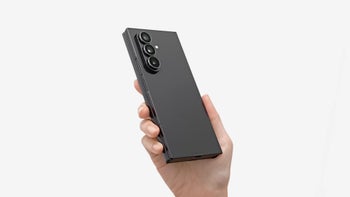Google steps up its legal defense of Android against Nokia and Apple

In two moves apparently targeted at putting its legal weight behind the embattled Android manufacturers, which are swamped with lawsuits left and right, Google has stepped up to the rescue.
Furthermore, in comments that are very much alluding to Samsung, and its charge to try and make Apple pay through the nose for some 3G-related standards it holds, Apple showed that it will make every effort to try and keep the distinction between standardized and non-standard technology and design patents. As per its General Councel Bruce Sewell:
First off, Google is now trying to be listed as co-defendant with HTC in its patent infringement lawsuit with Nokia. The Finns, in a possession of more than $6 billion worth of mobile related patents, are a formidable opponent, and without Google's help HTC might have to pony up even more in license and royalty fees, just when it is trying to save some cash, like wiggling out of the Beats Audio investment, for example.
We are grabbing our popcorn and waiting for the Google-Nokia patent fight, where El Goog is very likely to counteract with its Motorola patents, which it said were the main reason to buy Moto for $12.5 billion. Well, that, and some manufacturing prowess.
In another related move to defend Android from the lawsuits piling on it, Google has asked the FTC in a 15-page letter to consider Apple's design patents as FRAND, i.e. to be accepted as de facto industry standards, since otherwise Apple can sue anybody with a rectangular phone or tablet that uses sliding to unlock it, which we saw didn't work very well in the UK, for example. Apple caught wind of Google's filing, and sent its own 9-page rebuttal, saying that even if “a proprietary technology becomes quite popular does not transform it into a ‘standard’ subject to the same legal constraints as true standards".
To enhance their bargaining position, the FRAND patent holders have sought injunctions or other exclusionary remedies — to threaten companies like Apple that have been leaders in developing product-differentiating technology, and to force them to either pay exorbitant royalties or license their product-differentiating technology.
Ouch. And let's not forget that the CEO Tim Cook shares the same vision, as he was more than eloquent to clarify on the matter at the last D10 conference:
No one should be able to get an injunction off a standards-essential patent because the owner of the patent has the responsibility to license it on a fair, reasonable and non-discriminatory manner. And so when somebody comes to you and tries to get some obscene level of money from you for this, they are in essence telling you they are not going to license it because they want to go try to get an injunction and use the court system to do that. In my view, they use it in a way that it wasn’t intended...
And you can always argue about the payment, and there has to be a forum for resolving those disputes. The problem in this industry is if you add up what everybody says the standards-essential patents are worth, no one else could be in the phone business. Competition would be locked out. And so it’s kind of gotten crazy — this is one issue...
There is some of this that is maddening. It’s a waste; it’s a time-suck. However, does it stop innovation? It’s not going to stop us from innovating — no — but it’s overhead. It’s overhead that I wish didn’t exist.
source: FOSSPatents & AllThingsD
Follow us on Google News













Things that are NOT allowed:
To help keep our community safe and free from spam, we apply temporary limits to newly created accounts: